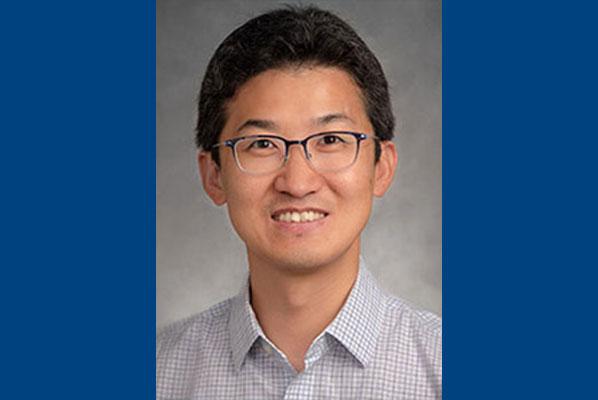
The United States Department of Defense (DOD) has awarded Jung Wook Park, PhD, a Prostate Cancer Idea Development Award. The $900,000 grant will be disbursed over three years beginning in Sept. 2024 to support his lab’s work developing a targeted therapy for a highly aggressive treatment-resistance prostate cancer called neuroendocrine prostate cancer (NEPC).
Prostate cancer is the most common cancer in men in the United States, accounting for nearly a third of diagnoses. Researchers have been trying to discover cancer-driving mechanisms leading to prostate cancer development and progression to develop and improve targeted therapies. Various cancer treatments have been developed for prostate cancer patients who are in the early and late stages of the disease. However, prostate cancer cells often evolve become resistant to treatment.
NEPC has quite different characteristics compared to conventional prostate cancer, which is called prostate adenocarcinoma (PrAd). Thus, current knowledge and treatment for PrAd cannot be applied to combat NEPC. Unfortunately, NEPC patients have a dismal prognosis because no effective treatments exist. NEPC patients typically survive less than a year on average, underscoring the critical need for expedited development of novel treatment approaches.
The Park Lab found that a new chemical compound, 4-Carboxybenzaldehyde (CBA), could suppress NEPC cells' growth without affecting non-cancerous prostate cells' growth. In their study, they will profile a global landscape of cellular and molecular changes altered by CBA compound in NEPC cells in order to understand the mechanisms of CBA as a new therapeutic option for NEPC patients. Identifying the changes will provide knowledge leading to more effective ways to tackle NEPC growth.
Second, they will try to elucidate the mechanisms of CBA suppression of NEPC cells and synthesize CBA derivatives to provide candidate compounds with desirable potency, safety, and drug-like properties for future preclinical and clinical studies. They will determine the anticancer capacity, cell-type specificity, and safety with the newly created derivatives.
Finally, the Park Lab will assess the therapeutic potential of CBA and its derivatives using preclinical disease models such as patient-derived cancer cells, which will assist in future translational research of CBA.
If successful, their research will define and validate essential cellular factors altered by CBA and its derivatives in NEPC cells and will create more effective drug candidates with fewer side effects for NEPC patients. The Park Lab study will provide insights about how to prevent or inhibit NEPC during current treatment options for prostate cancer patients and figure out how to develop targeted therapies for NEPC patients.
Park holds an Endowed Rollie Assistant Professorship in Correlative Pathology and has received various other awards recently, including the following:
- Class of 2020 Young Investigator Award from the Prostate Cancer Foundation (PCF)
- Idea Development Award (2021)
- DOD Kidney Cancer Idea Development Grant (2022)
In addition, his PhD Graduate Program student Yunsol “Kelly” Jo, was awarded a $2,000 Student Pilot Research Grant from Duke’s Precision Genomics Collaboratory in 2023 to support a study aimed at developing therapeutic approaches to tackling NEPC.